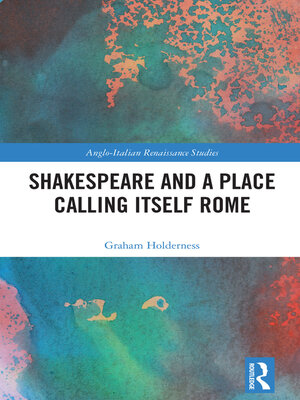Shakespeare and a Place Calling Itself Rome
ebook ∣ Anglo-Italian Renaissance Studies
By Graham Holderness

Sign up to save your library
With an OverDrive account, you can save your favorite libraries for at-a-glance information about availability. Find out more about OverDrive accounts.
Find this title in Libby, the library reading app by OverDrive.



Search for a digital library with this title
Title found at these libraries:
| Library Name | Distance |
|---|---|
| Loading... |
This new examination of Shakespeare's four Roman tragedies (Julius Caesar, Titus Andronicus, Coriolanus and Antony and Cleopatra) revisits Shakespeare's dramatic recreations of ancient Rome in the light of considerations of place:
Alongside this analysis the book explores contemporary critical debates and the uses of place and space in selected modern adaptations – the Taviani brothers' Italian film Caesar Must Die, Julie Taylor's film Titus, John Osborne's play A Place Calling Itself Rome and Ahmed Shawqi's Arabic Death of Cleopatra.
The book provides a descriptive, palimpsestic map of the places within which Shakespeare's Roman plays operate, tracing the contours of Rome's Republic and Empire, overlaid with the Europe of Shakespeare's day, in which a Romanised London looked with fascination towards the East, towards Rome and Alexandria. Equipped with such a map we can attempt to do what Shakespeare did: to recreate ancient Rome in conjunction and rapprochement with its early modern and modern counterparts.







